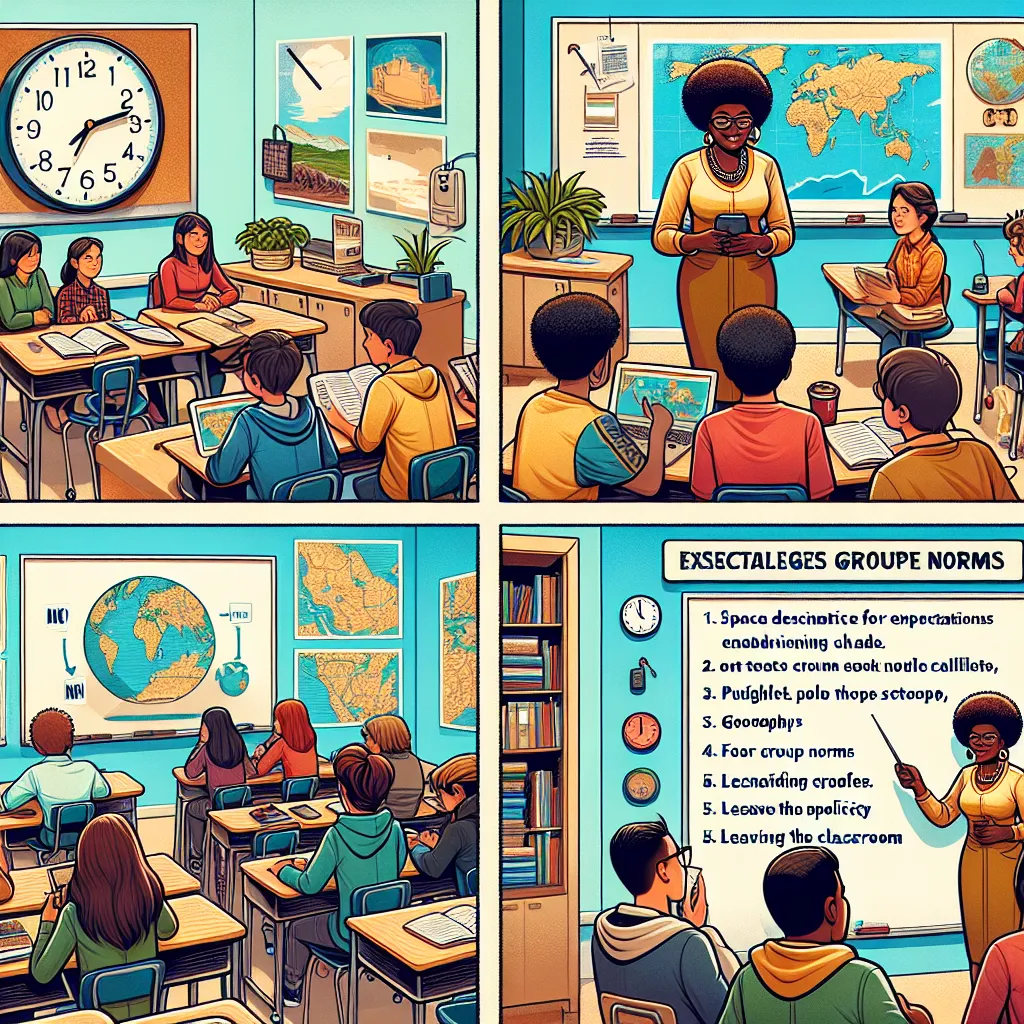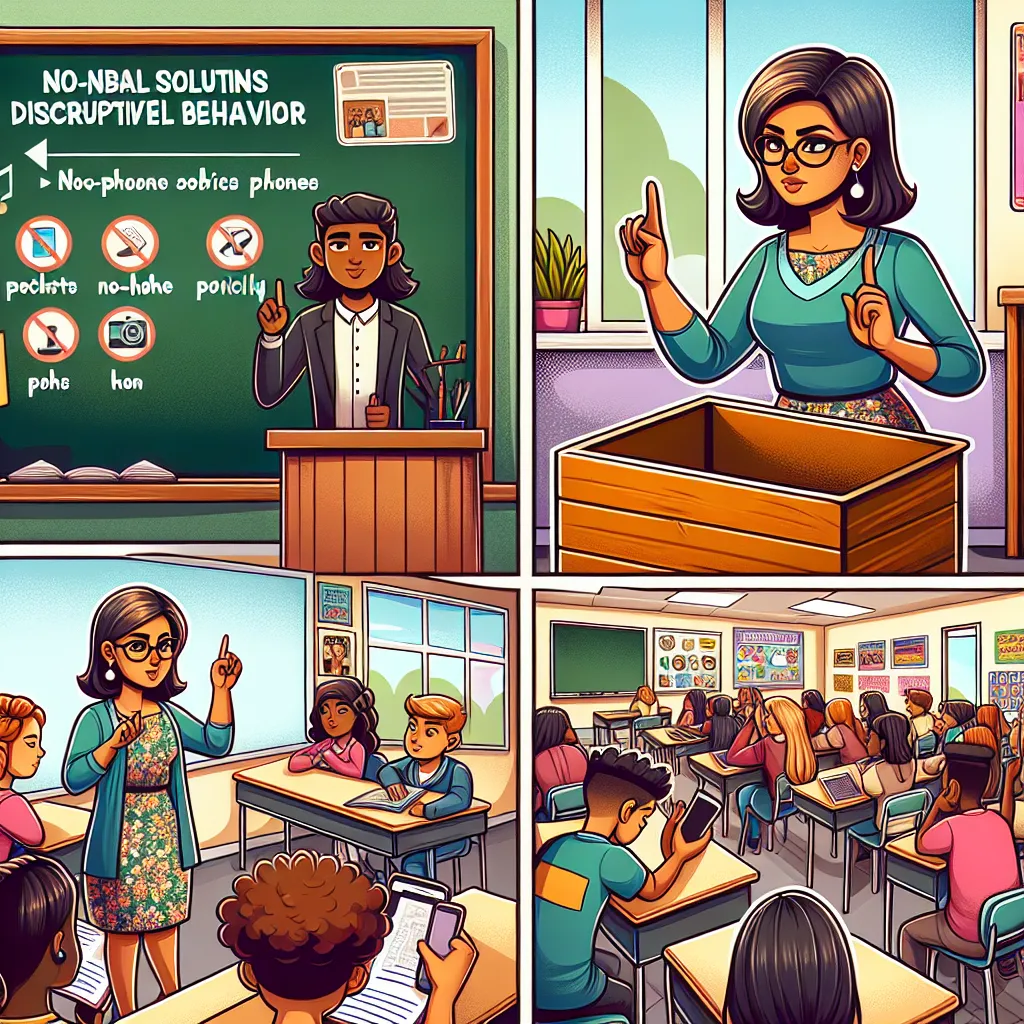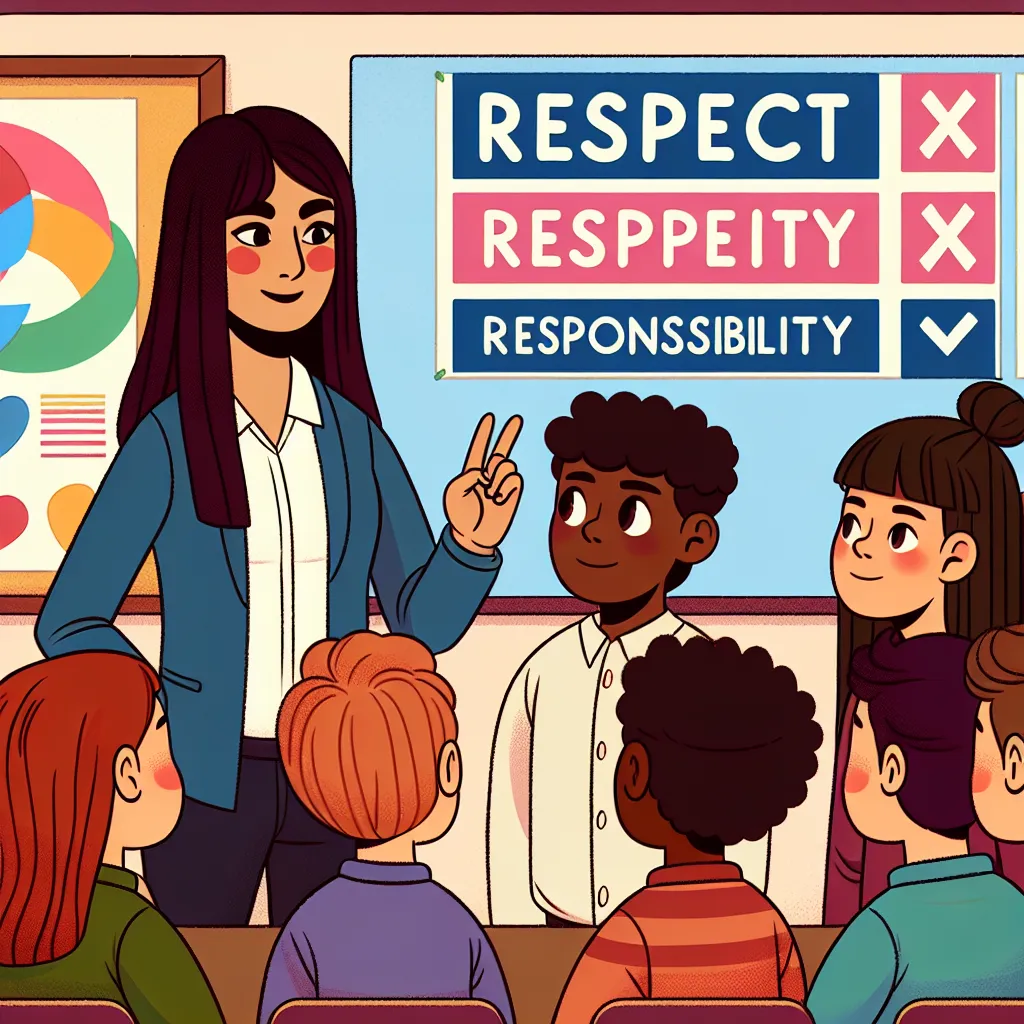Ask AI on The Internet
Question: Case Study: Managing a Disruptive Class Background: Mrs. Xaba is a high school geography teacher who has been assigned a Grade 11 class known for its disruptive behaviour. The class includes a mix of learners with varying levels of interest in geography, but many exhibit behaviours that make teaching and learning challenging. These behaviours include: Arriving Late: Several learners consistently arrive late to class, disrupting the flow of the lesson and the attention of other learners. Talking During Lectures: Many learners talk to each other during the lecture, making it difficult for Mrs. Xaba to maintain control and for other learners to concentrate. Lack of Attention: A significant portion of the class seems disengaged, constantly needing reminders to pay attention to the lesson. Phone Usage: Despite a no-phone policy during class, some learners openly use their phones to text, browse social media, or play games. Leaving the Classroom: Some learners leave the classroom without permission, disrupting the lesson and setting a poor example for others. Mrs. Xaba is committed to helping her learners succeed, but she is struggling to maintain discipline and create a positive learning environment. She is considering different strategies to address these issues but is unsure of the most effective approach. Your task is to provide Mrs. Xaba with some solutions to the above challenges by answering the questions below: 1.How would you address the issue of learners arriving late to class? What strategies could be implemented to encourage punctuality? 2.What steps would you take to manage learners who talk during the lecture? How can you maintain their attention without disrupting the flow of the lesson? 3.How can a teacher effectively deal with learners who are disengaged and constantly need reminders to pay attention? What methods could be used to increase their interest in the subject? 4.What would you suggest as a solution to the problem of learners using their phones during class? How can this behaviour be minimized or eliminated? 5.How should a teacher handle learners who leave the classroom without permission? What measures can be taken to prevent this behaviour?
To help Mrs. Xaba manage her disruptive Grade 11 geography class, here are detailed solutions to each of the issues she faces: ### 1. Addressing Learners Arriving Late **Strategies to Encourage Punctuality:** - **Set Clear Expectations:** At the start of the term, clearly communicate the importance of punctuality and the consequences of arriving late. - **Incentivize Positive Behavior:** Introduce a reward system for punctuality, such as praise, small privileges, or a point system that contributes to a positive outcome like extra points on an assignment. - **Start with Engaging Activities:** Begin the lesson with interesting, brief activities or quizzes that learners enjoy and don't want to miss. This can provide a natural incentive to arrive on time. - **Leverage Peer Influence:** Encourage punctual learners to positively influence their peers. Peer pressure can be a powerful motivator at this age. - **Consistent Consequences:** Implement and consistently enforce consequences for lateness, such as requiring late students to stay after class or assigning extra tasks. - **Private Conversations:** Have one-on-one discussions with habitual latecomers to understand their reasons for being late and to reiterate expectations. ### 2. Managing Learners Talking During Lectures **Steps to Manage and Maintain Attention:** - **Establish Clear Rules:** Before the lesson, remind the class of the rules regarding talking and the importance of respecting others' right to learn. - **Interactive Teaching:** Use interactive teaching methods such as group discussions, Q&A sessions, think-pair-share activities, and polling. - **Proximity Control:** Move around the room while teaching. Proximity to the teacher often discourages off-task behaviors. - **Non-Verbal Cues:** Implement non-verbal cues such as hand signals, eye contact, or standing silently to signal that talking needs to stop. - **Engagement Techniques:** Use varied and dynamic teaching methods to maintain interest. For example, incorporate multimedia, real-world examples, and hands-on activities related to geography. - **Quick Redirects:** If students start talking, quickly and calmly redirect their attention by asking a relevant question or calling on them to participate. ### 3. Dealing with Disengaged Learners **Methods to Increase Interest and Engagement:** - **Relate Content to Students' Lives:** Make lessons relevant by connecting geography topics to current events, local issues, and learners' personal experiences. - **Active Learning:** Integrate project-based learning, field trips, simulations, or interactive technology to make learning more hands-on and engaging. - **Differentiated Instruction:** Tailor activities to accommodate different learning styles and interests. Use various formats like videos, readings, group work, and individual tasks to keep students engaged. - **Frequent Check-ins:** Ask questions regularly to keep everyone engaged and ensure understanding. Praise correct answers and effort. - **Gamification:** Incorporate elements of gamification, such as quizzes, competitions, and rewards, to make learning fun and motivating. ### 4. Minimizing Phone Usage **Solutions to Reduce or Eliminate Phone Use During Class:** - **Designated Phone Collection Spot:** Have a designated area where students place their phones at the beginning of class. - **Incorporate Technology:** Occasionally allow the use of phones for educational purposes to satisfy the need to use technology in a controlled manner. - **Clear Consequences:** Set and enforce clear consequences for unauthorized phone usage, such as confiscating the phone until the end of the class. - **Engaging Lessons:** When students are actively engaged and interested in the lesson, they are less likely to be tempted to use their phones. - **Parental Involvement:** Inform parents about the policy and seek their support in encouraging their children to adhere to it. ### 5. Handling Learners Leaving Without Permission **Measures to Prevent Unauthorized Exits:** - **Set Clear Boundaries:** Explain the rules regarding leaving the classroom and the importance of staying unless there’s an emergency. - **Permission Passes:** Implement a hall pass system where students must ask for permission and take a pass when leaving the room. - **Classroom Engagement:** Make the classroom environment engaging and inclusive so that students feel more inclined to stay. - **Monitor Patterns:** Pay attention to patterns and speak privately with students who frequently leave to understand their reasons and address any underlying issues. - **Involve Administration:** If the problem persists, involve school administration or counselors to discuss and find solutions. By proactively addressing these issues with structured strategies and positive reinforcement, Mrs. Xaba can create a more conducive learning environment, ensuring her students have the best chance at success.
Think your answer is better than the AI's? Post it below.
Other Most Relevant Posts:
Question Tags
If you want your question answered by an AI, click here.







Post your own comment: